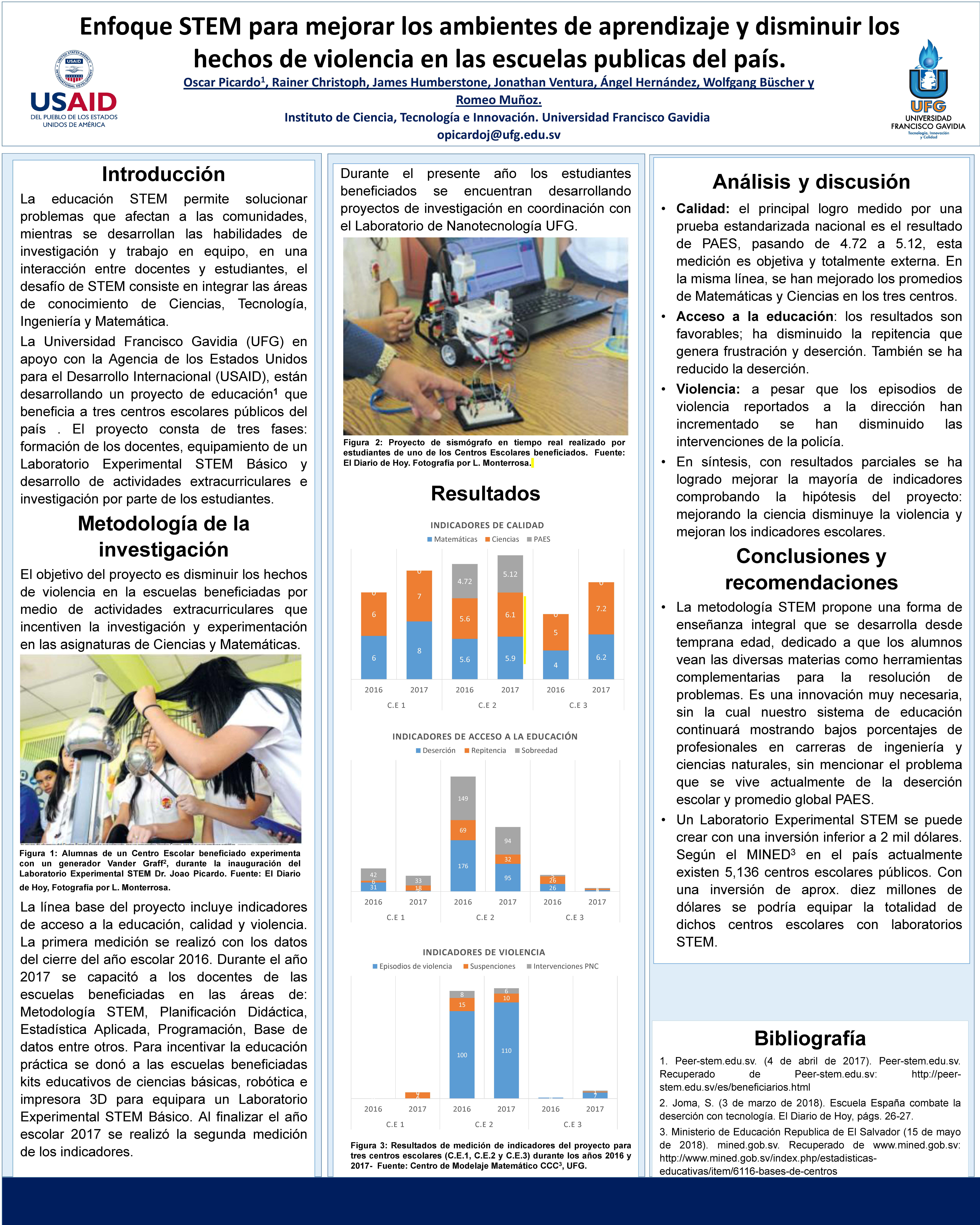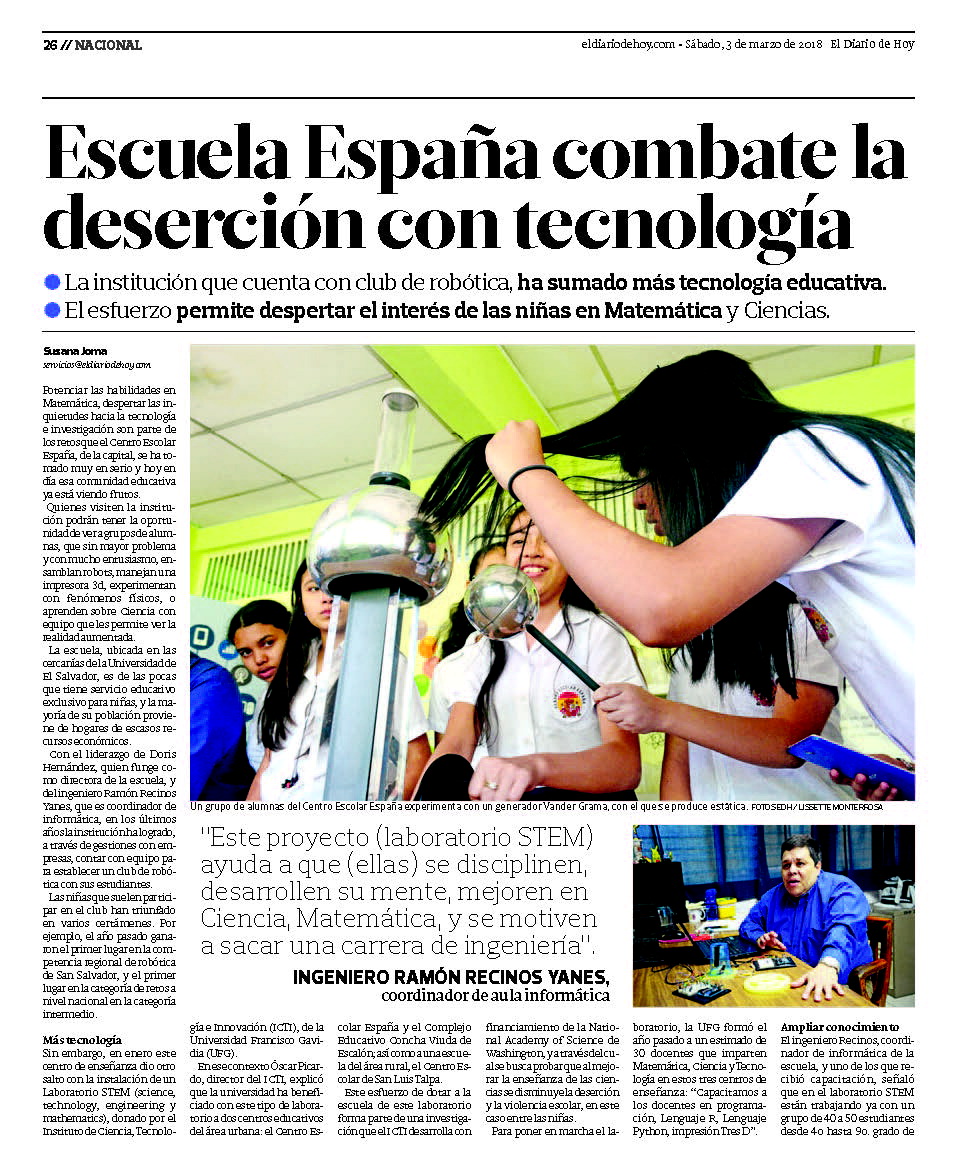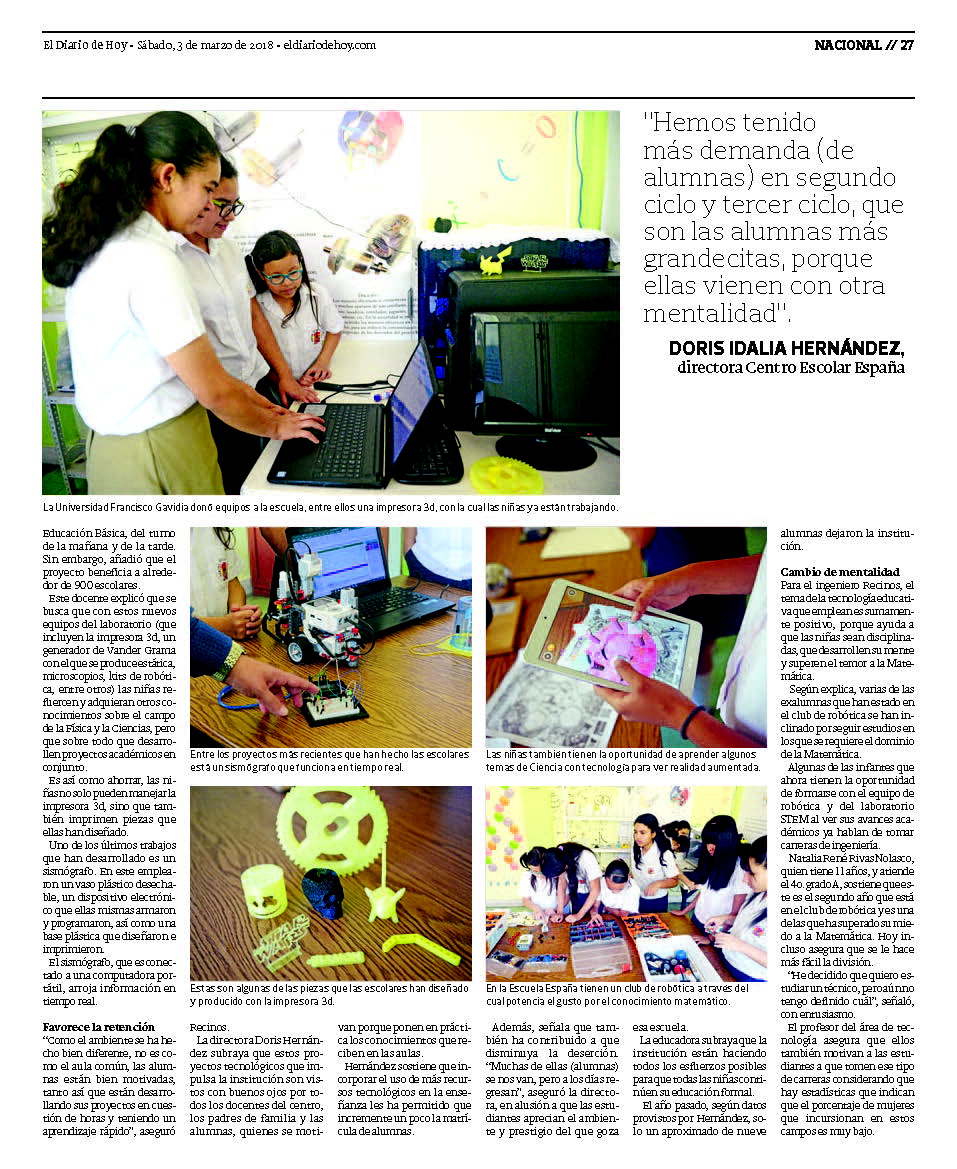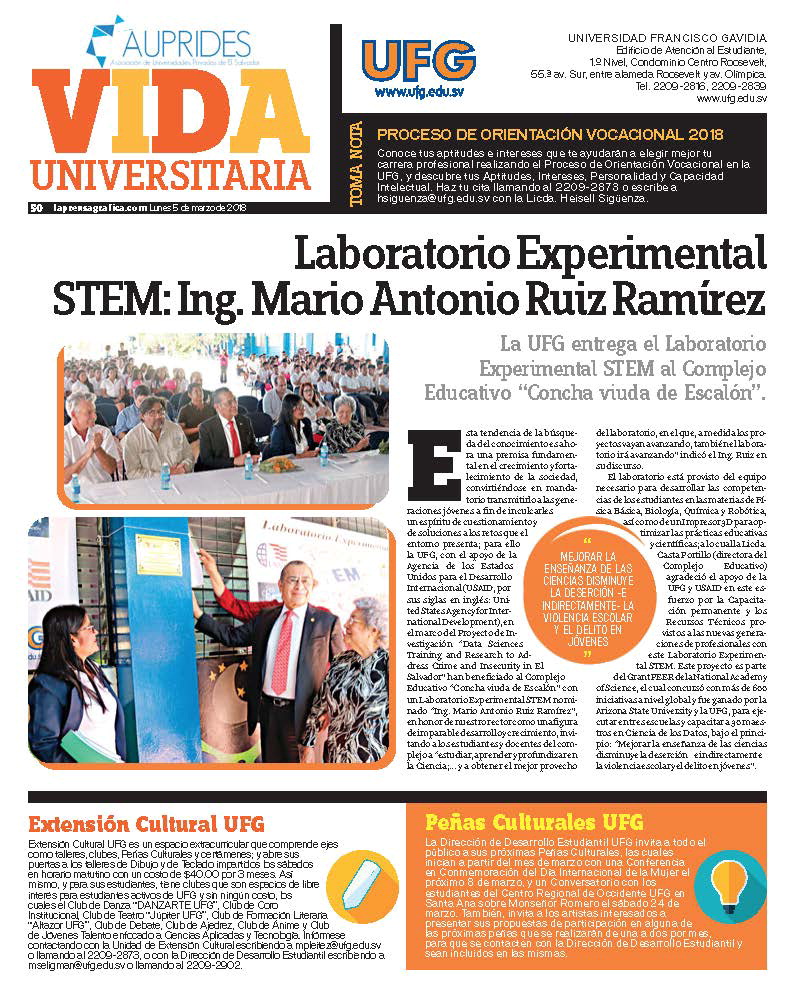|
Cycle 5 (2015 Deadline)
Data sciences training and research to address crime and insecurity in El Salvador
PI: Oscar Picardo (opicardoj@ufg.edu.sv), Universidad Francisco Gavidia
U.S. Partner: Carlos Castillo-Chavez, Arizona State University
Project Dates: January 2017 - November 2018
Project Website: http://www.peer-stem.edu.sv/
Project Overview
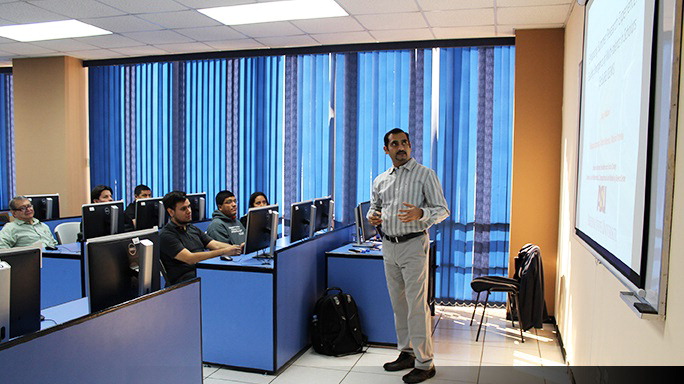 | Skills improvement workshop in STEM and programming in Python. (Photo courtesy of Dr. Picardo) |
The 2015 UNESCO Science Report (Towards 2030) shows that El Salvador ranks poorly in Latin America in science, technology, and innovation (STI) capacity. However, improving Salvadoran STI capacity is challenging, as approximately 32% of the population lived below the national poverty line in 2014, the country is plagued by gang violence, and among countries not at war, El Salvador had the world’s highest estimated murder rate in 2015 (6,600 homicides out of a population of 6.3 million). Given this backdrop, the project seeks to increase STI capacity in El Salvador by addressing crime and insecurity in the country. To do so, the project team will launch a data sciences training and research program at the Universidad Francisco Gavidia (UFG) for 30 Salvadoran participants. Program participants will include ten UFG students, ten participants from Salvadoran judicial institutions or law schools, and ten STEM teachers selected from two public secondary schools in San Salvador. After an intensive two-month training phase, the participants will divide into a Judicial Group and a Teachers Group and begin a ten-month research phase. The program structure is modeled after the successful NSF research experience for undergraduates (REU) program, the Mathematical and Theoretical Biology Institute (MTBI), which the U.S. partner on this project has operated for 20 years.
Inspired by the success of Dr. Rodrigo Guerrero Velasco in applying data sciences and epidemiology to combat crime in Cali, Colombia, the Judicial Group will create a crime data sciences laboratory at UFG to collect and analyze crime and violence data in El Salvador. Their research objective is to improve the tools to guide crime and violence prevention strategies in El Salvador. Education is a critical short- and long-term remedy to mitigate crime and violence, but the low average quality of teachers constrains efforts to improve educational efforts. To address this constraint, the Teachers Group will work to improve the professional development of Salvadoran STEM teachers. Specifically, the group will help teachers create hands-on STEM activities with an emphasis on data collection and analysis to supplement STEM curricula in public secondary schools. They will also form teacher Lesson Study groups at two public secondary schools.
This PEER project addresses USAID’s goals of mitigating crime and insecurity in El Salvador. By training the Judicial Group participants and creating a crime data sciences lab, the project should provide valuable data sciences resources that increase the competence of the judicial sector. By training public school teachers in San Salvador and promoting the development of new STEM curricula that are not focused on rote learning, the project should improve STEM education for at-risk youths, which can help mitigate the lure of gangs and provide the foundation for learning valuable technical skills. The focus on training teachers creates a multiplier effect, as these teachers can train their colleagues, and this network can reach more students than other types of programs. The training of UFG students also strengthens their marketable job skills and provides a pipeline of valuable government and private sector employees. In addition, the crime data sciences lab will be the first project for the new UFG Center for Mathematical Modeling in San Salvador to study crime, violence, and insecurity and their impacts on Salvadoran society.
Final Summary of Project Activities
The project ended in November 2018. According to the PI Dr. Picardo, almost all of the indicators established in the baseline of the project have been a success, supporting the hypothesis that improving science reduces violence and improves school indicators. After receiving STEM equipment, throughout the duration of the project, beneficiary schools held science contests to motivate their students to think in unconventional ways and to create interest in STEM technologies, in efforts to create a safe space for kids to be off the streets. Dr. Picardo reports that mechanisms were developed as part of group projects to help set boundaries between schoolmates, also contributing to their social and leadership skills, and that measurable results have been a big motivating factor for the participating schools to maintain STEM methodologies, and the students are happy to engage in science in such a unique way. During the execution of this project, beneficiary schools developed their own initiatives to hold workshops and science fairs, with motivating impact on the students. Other initiatives included creation of classroom discussion groups where students openly discussed their individual skills to apply in team projects. As a result, according to Dr. Picardo, this generated positive impact in young participants' perception of science, creating additional motivation to stay off the dangerous streets.The PEER team focused on young people, who can advocate for change in methodology in schools, with teachers playing a fundamental role in the application of new techniques that help with the development of STEM within their classrooms. According to Dr. Picardo, the PEER project motivated both teachers and students to adopt STEM methodologies and, importantly, gain practical hands-on science learning within their classrooms, which contributes to improvement of the learning environment.
Now that the PEER project has ended, the project team will stay in touch with the participating schools in hopes that they will develop at least one STEM project in the course of the school year. Individual follow-up visits will be made to monitor progress, to make sure the donated equipment is being used appropriately, and to monitor the development of the STEM project indicators in comparison to the indicators recorded during the previous years. 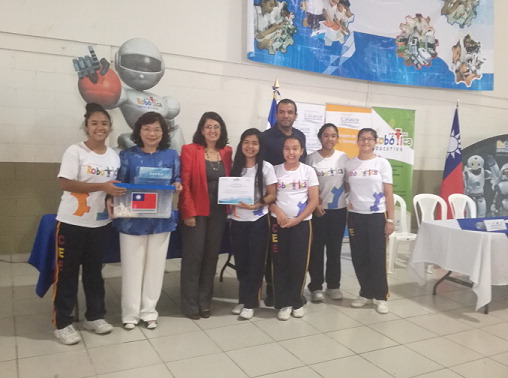 | 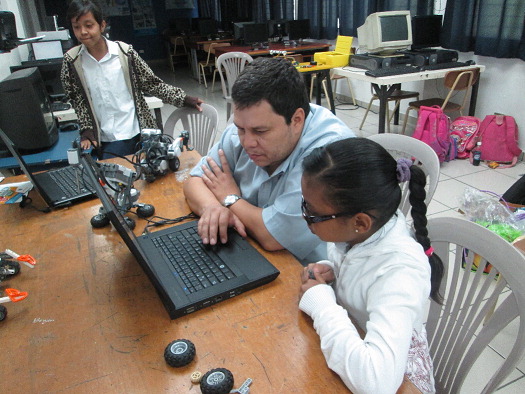 | 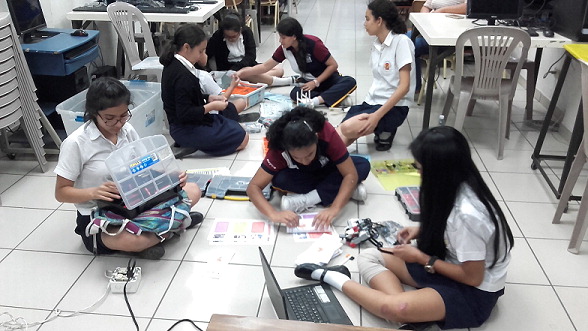 | | Receiving the first prize with the Taiwanese ambassador and the Deputy Minister of Science and Technology | Teacher Ramon Benjamín Recinos and students in Robotics Club | Participants in the 2017 National Championship |
Back to PEER Cycle 5 Grant Recipients
|
|
|
|








